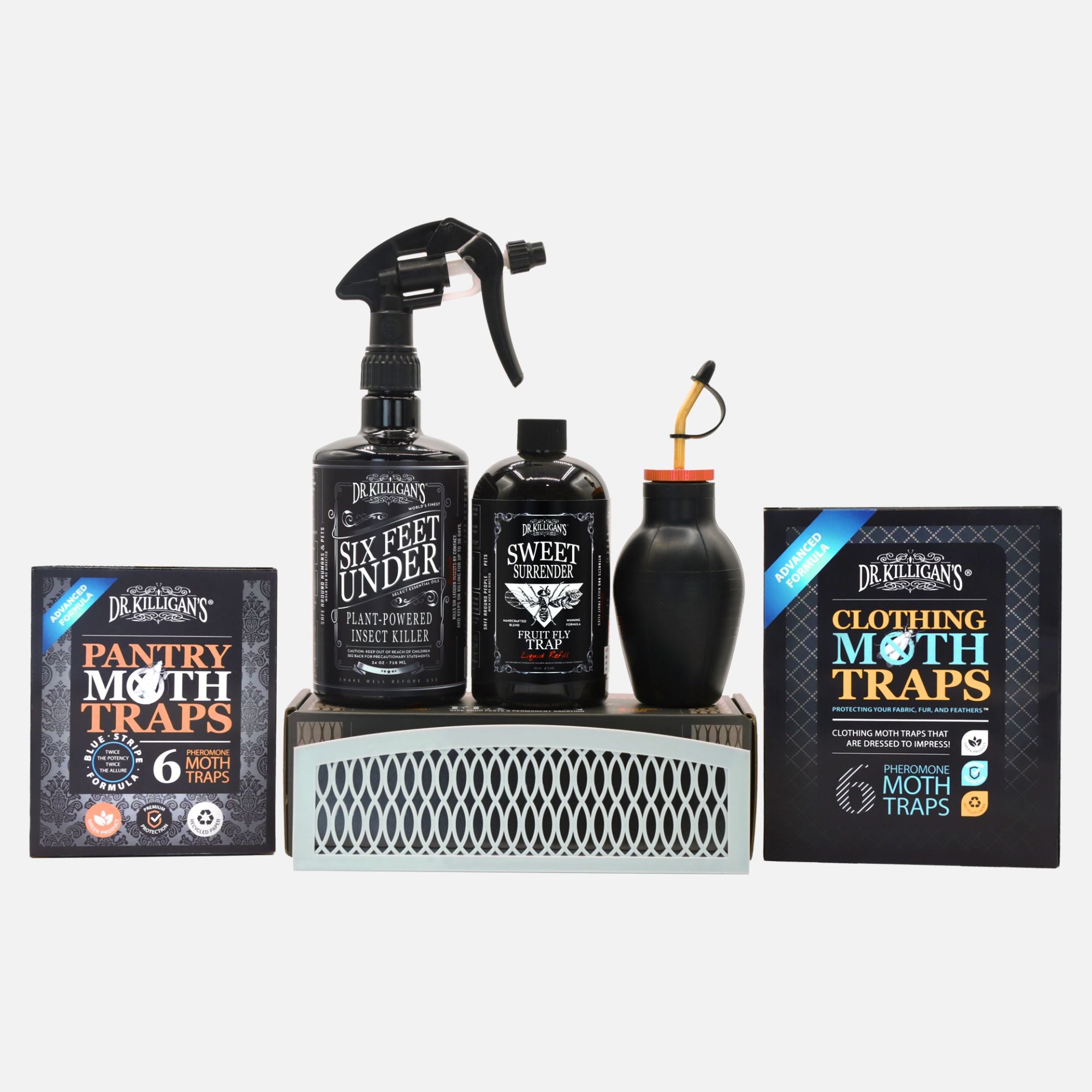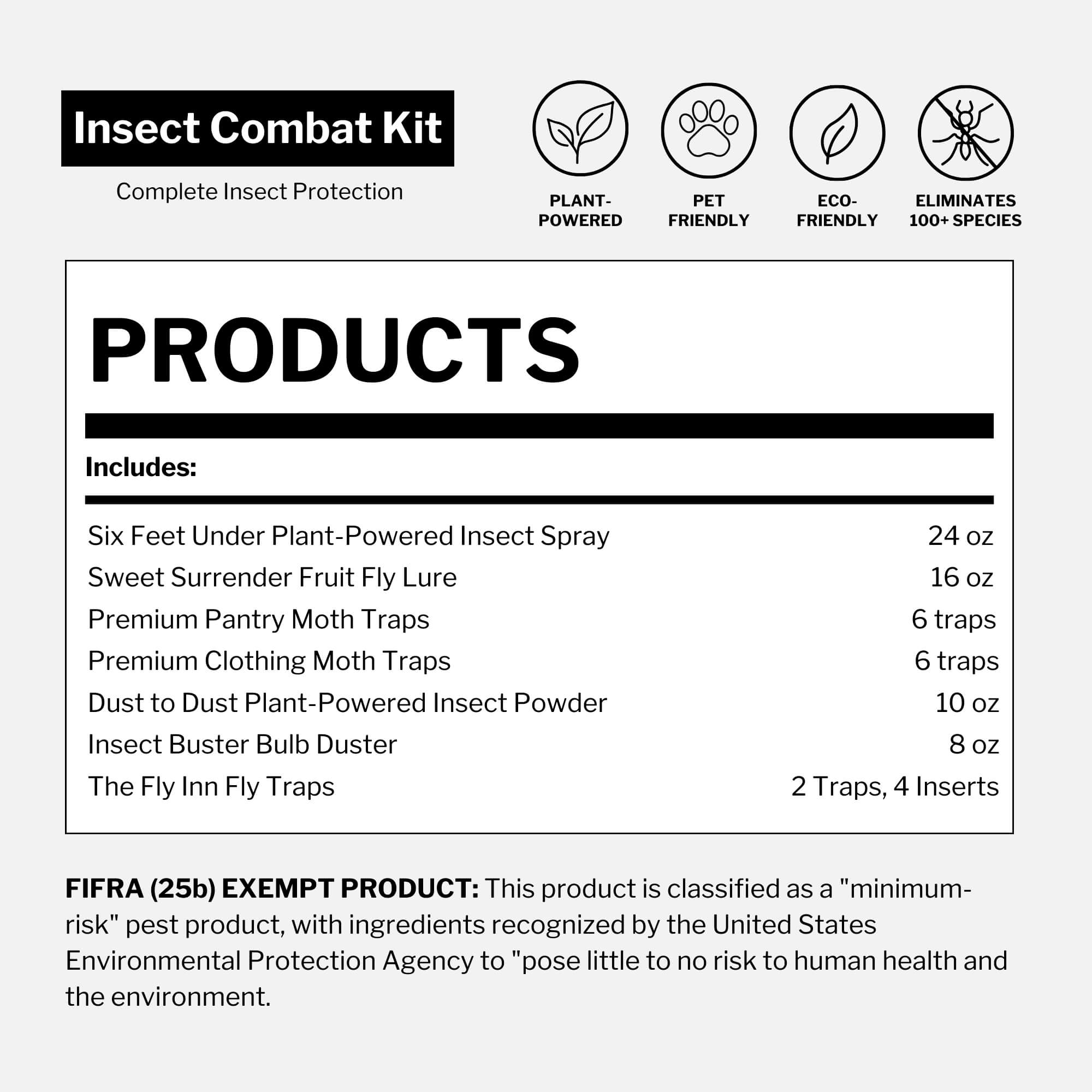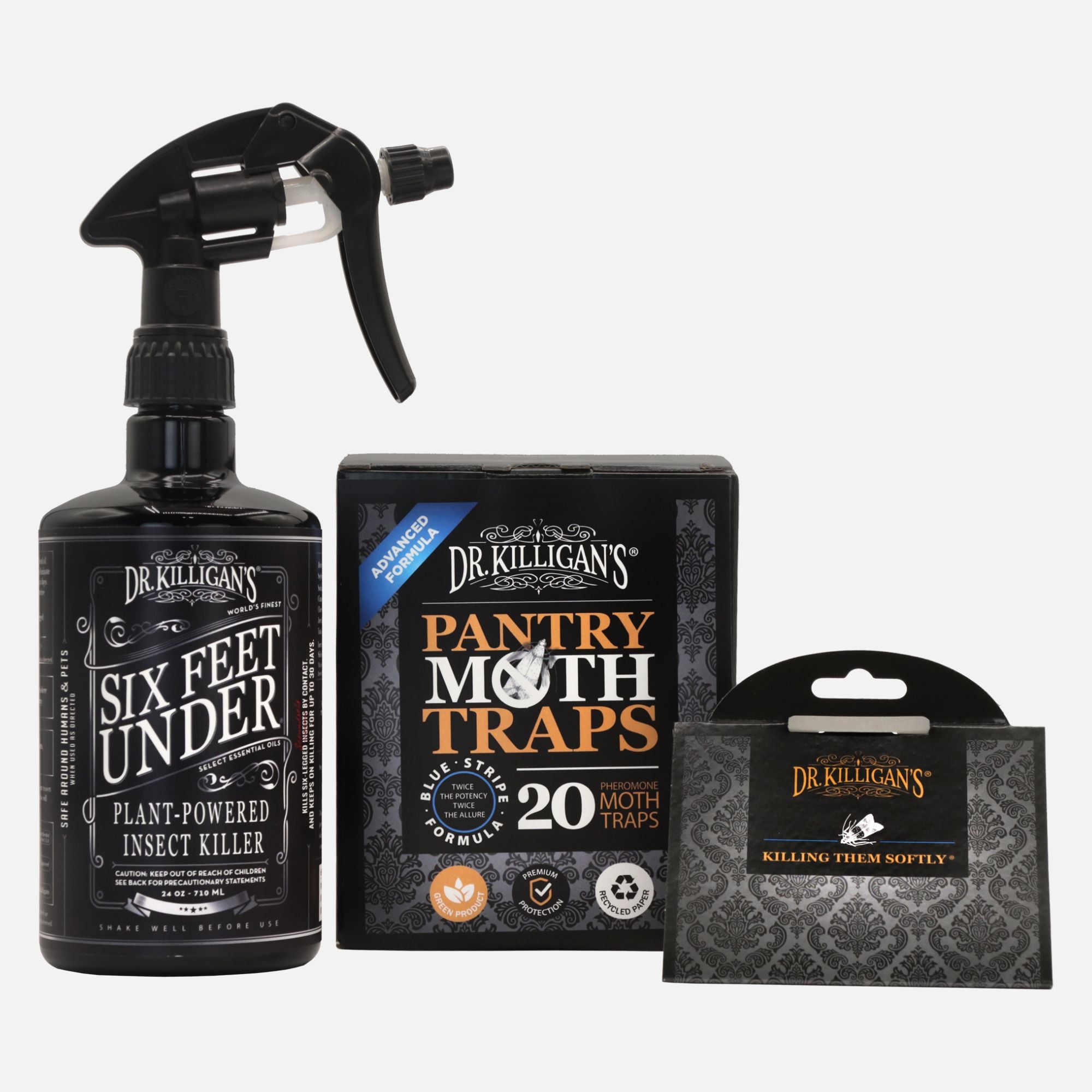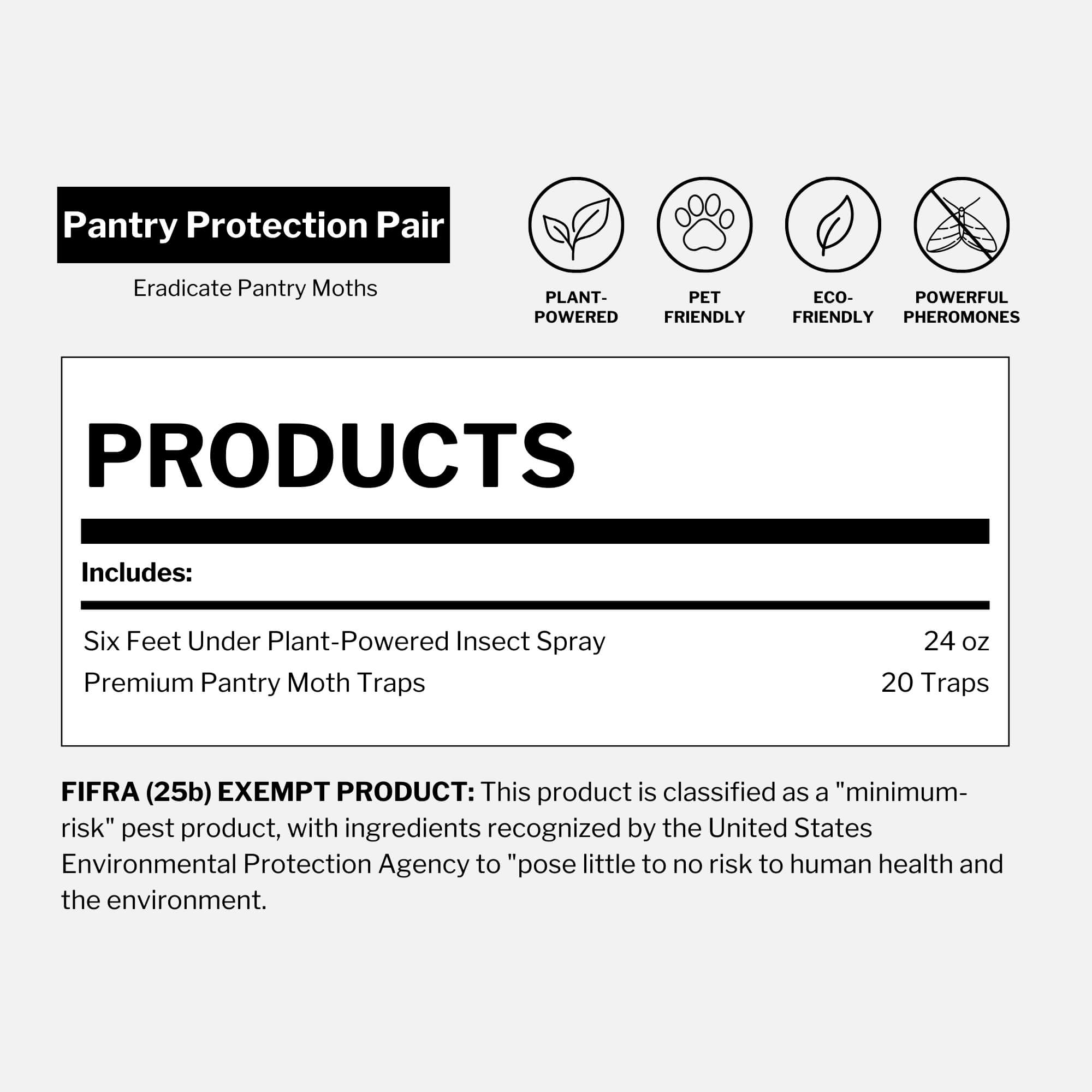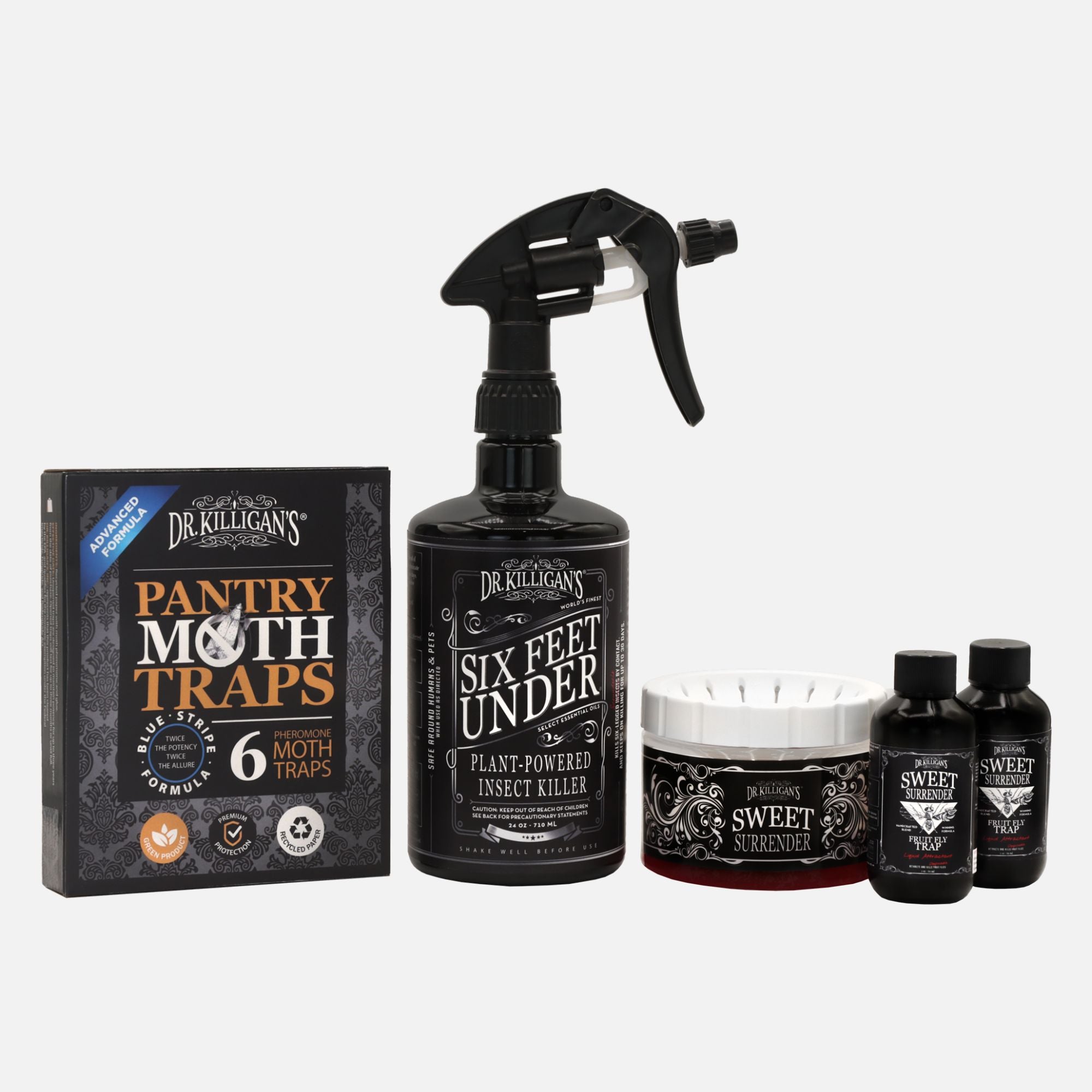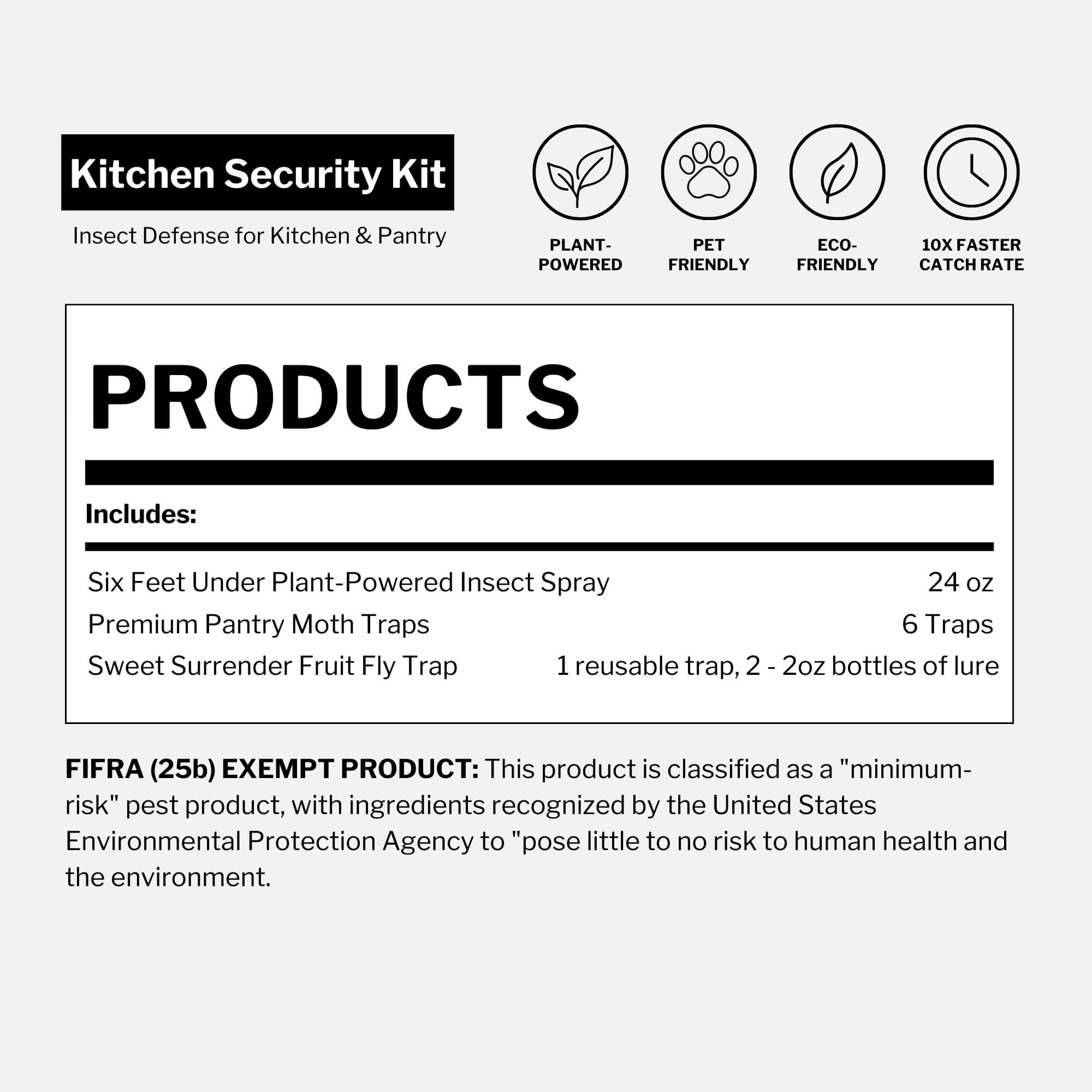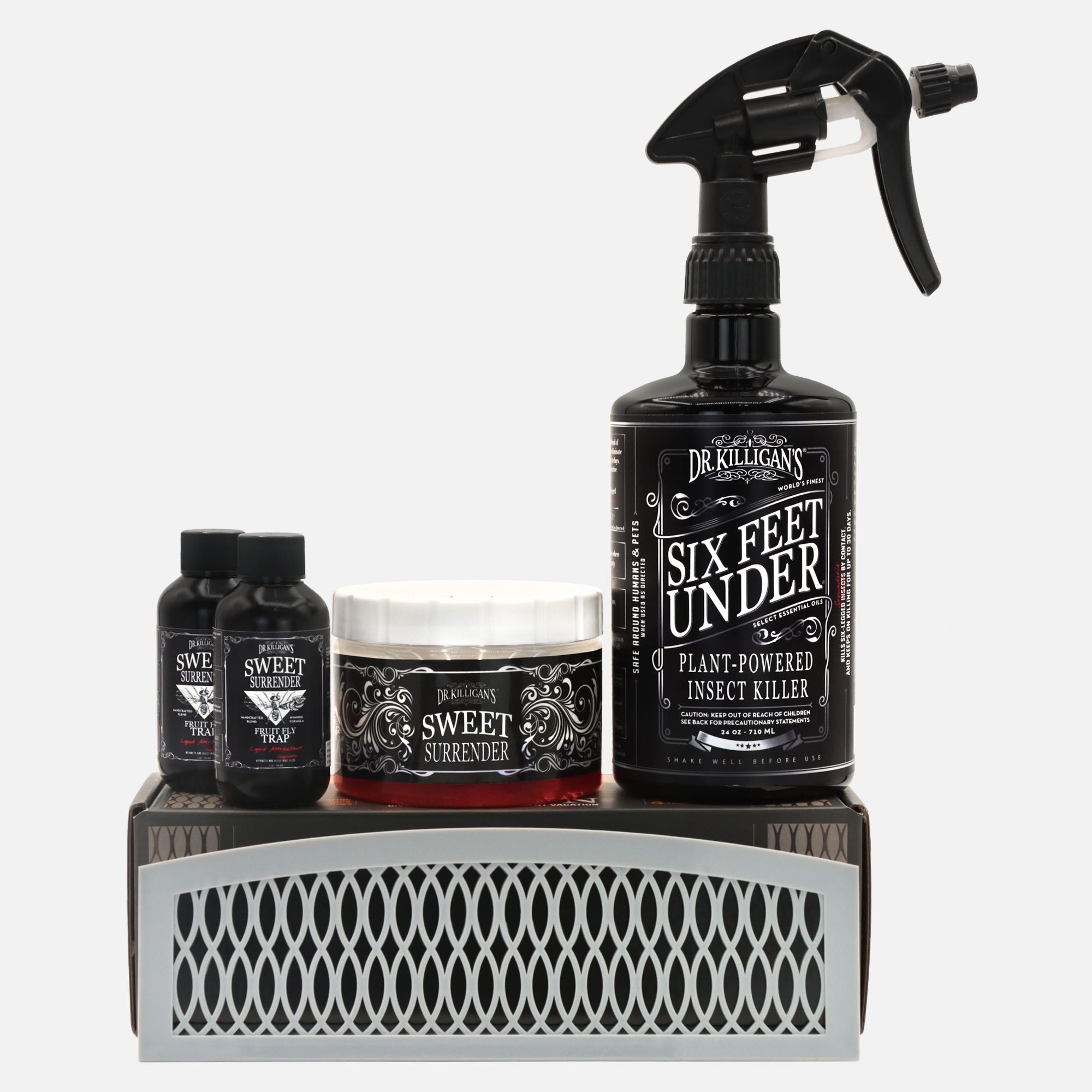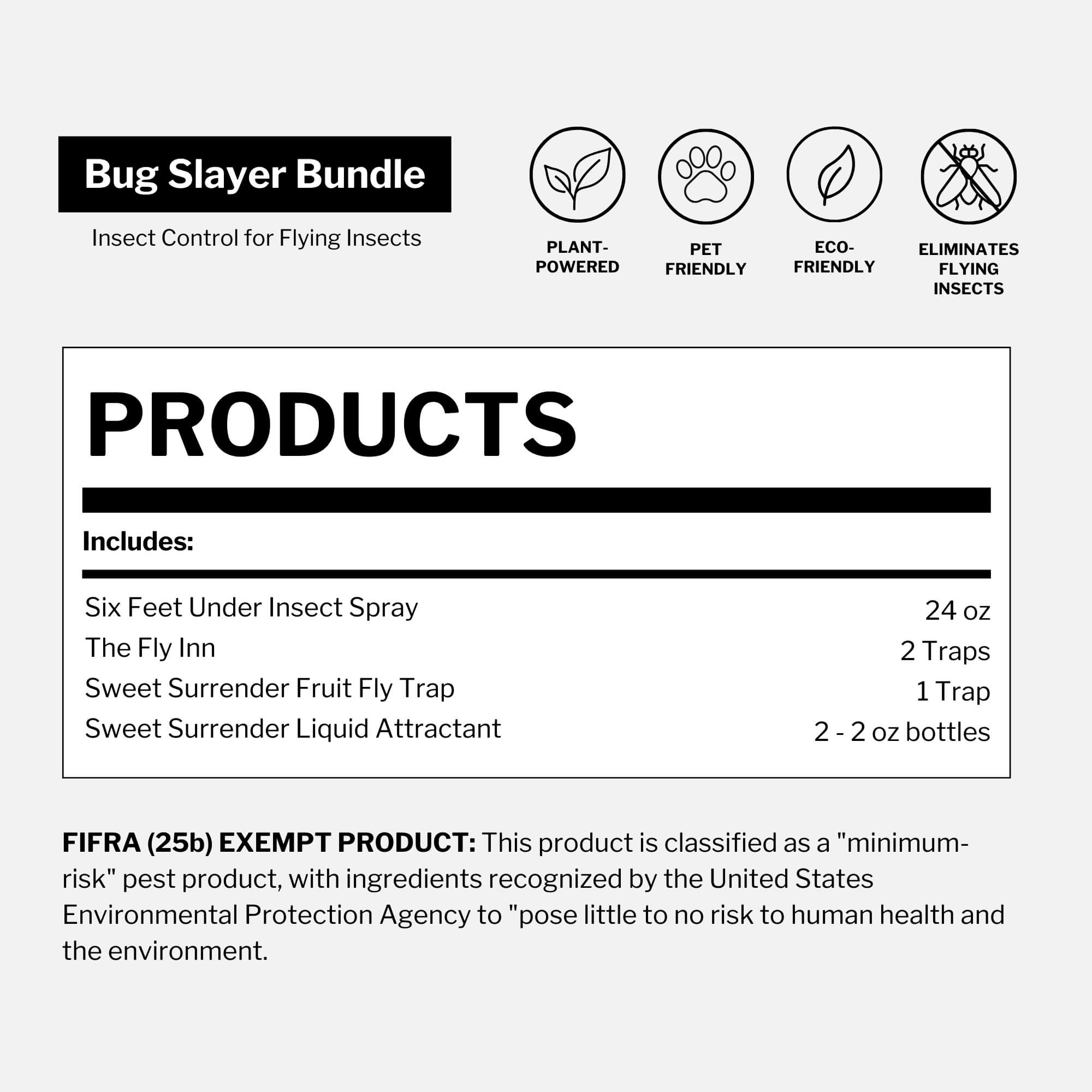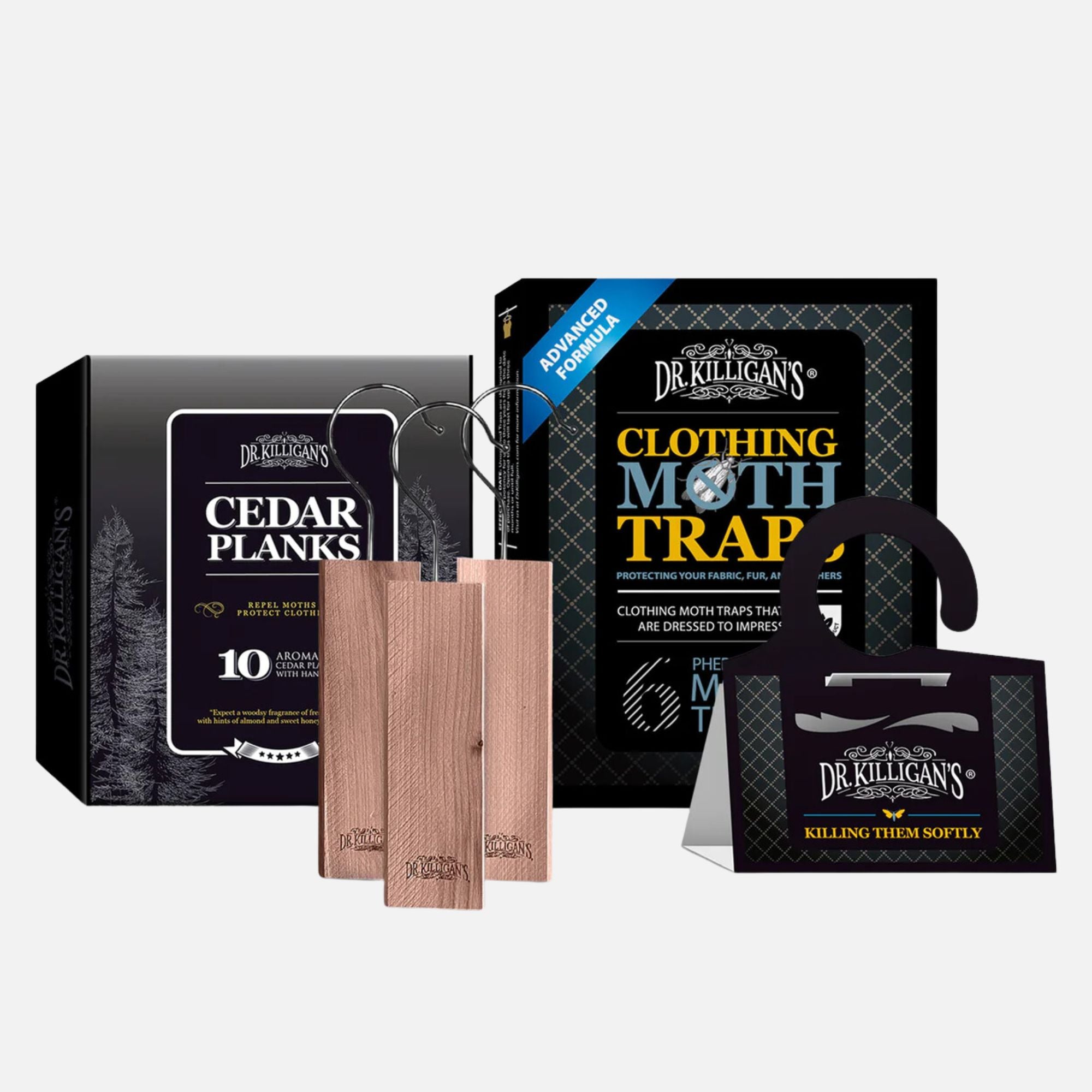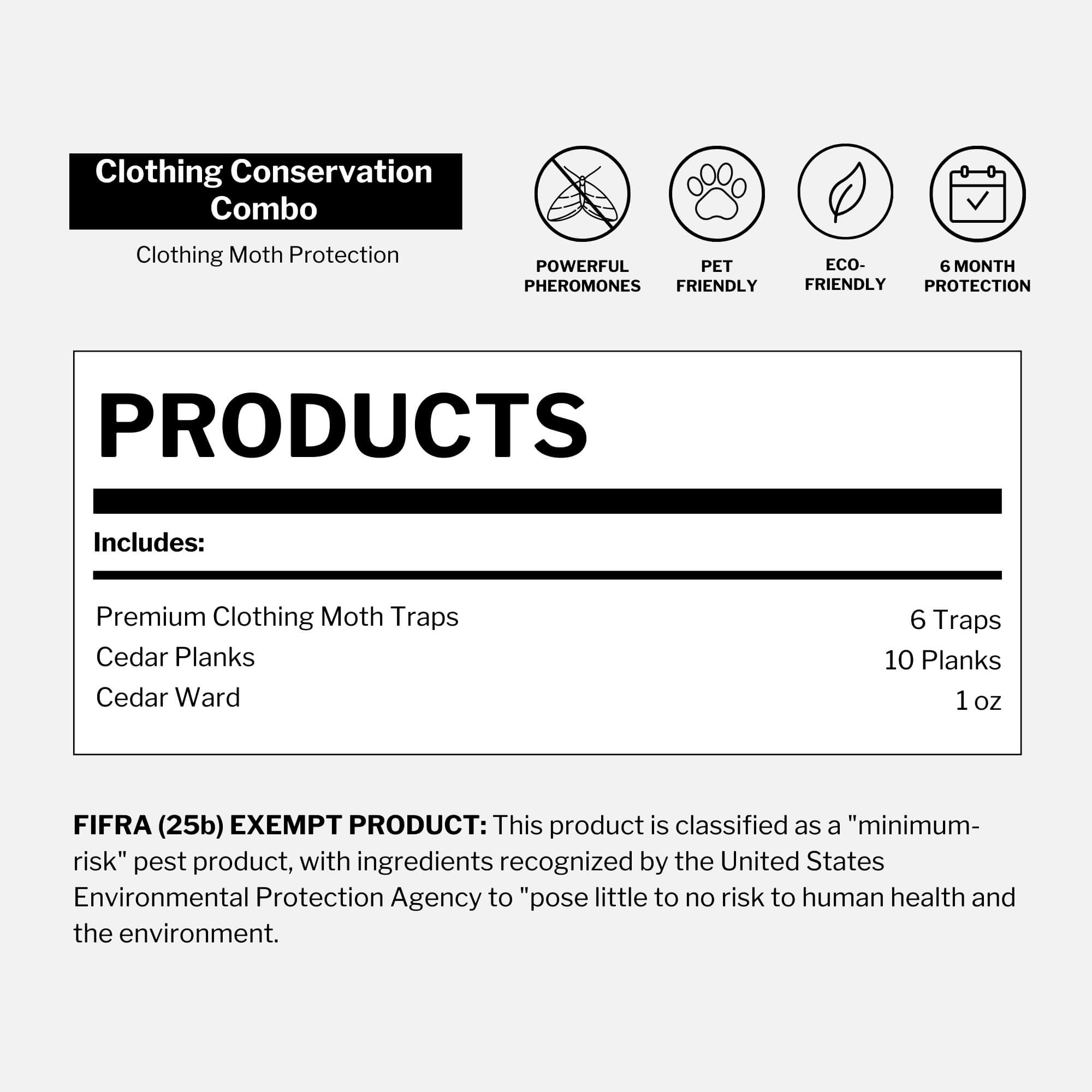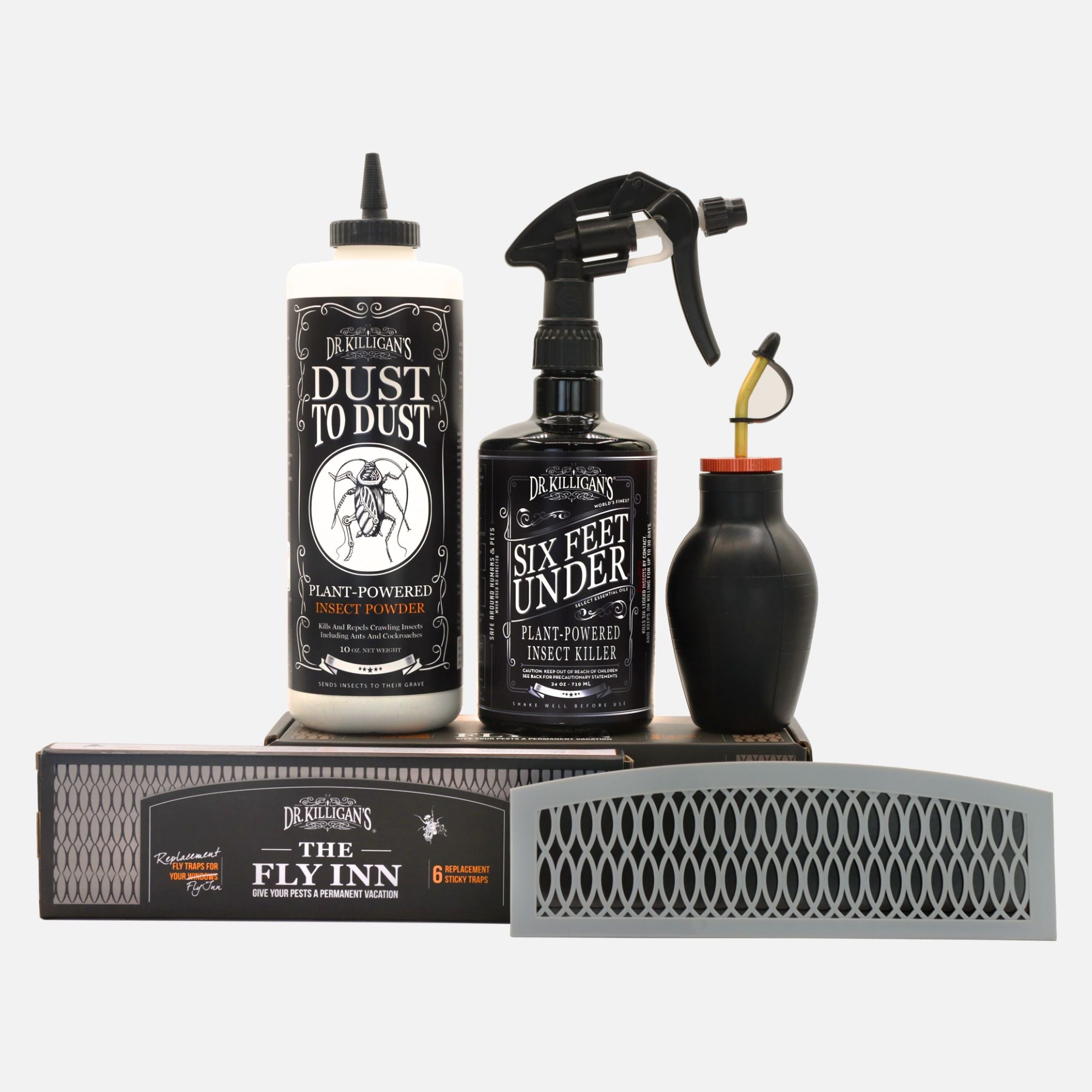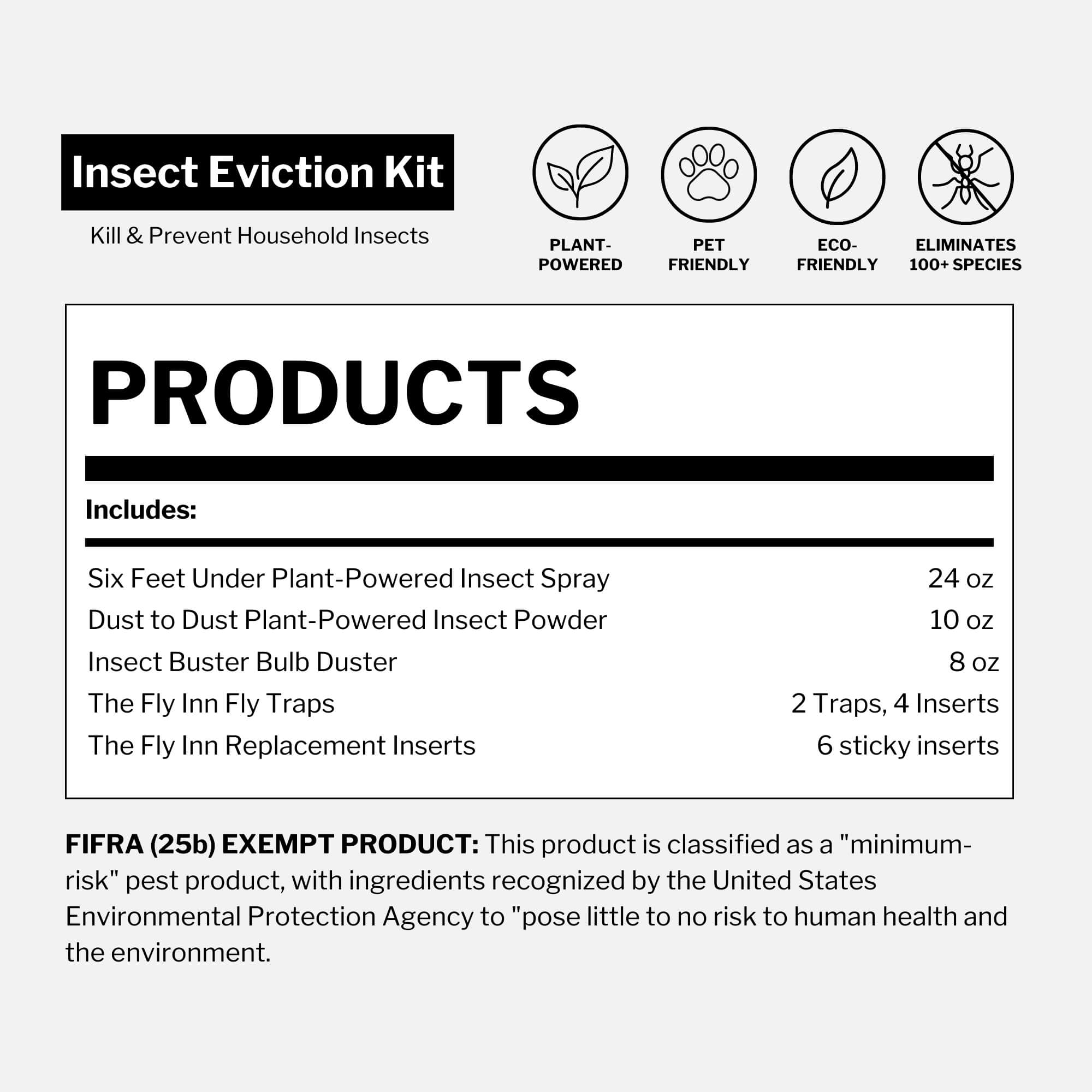Updated on July 5, 2024
Clove oil has been used for centuries in a variety of applications. Among its many uses, it supports a healthy immune system, relieves pain from toothaches and serves as a non-toxic insect-killing ingredient in our Six Feet Under Plant-Powered Insect Spray.
In this article, we’ll discuss what clove oil is, including an explanation of one of its major components—eugenol, and explore its uses, benefits and how we at Dr. Killigan’s utilize it.
What is clove oil?
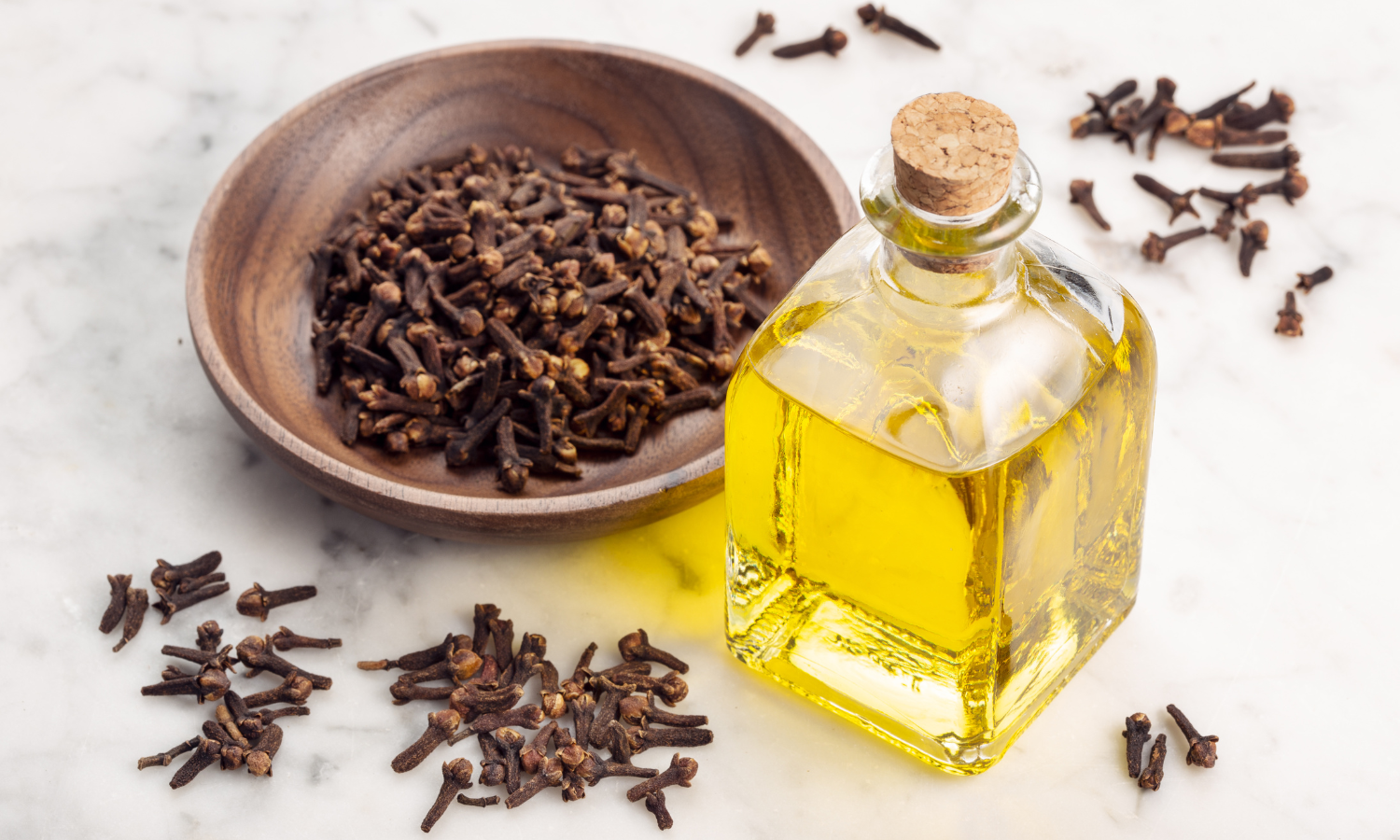
Oil of clove, also known as clove oil, is an essential oil that is extracted from the clove tree Syzygium aromaticum. While originally native to just a few islands in Indonesia, it is now grown in many tropical climates, including India, the West Indies and Brazil. Its major producers are its native land of Indonesia, followed by Madagascar and Tanzania.
Clove oil is colorless or pale yellow, with a warm, spicy scent that smells just like cloves. It is produced through distilling dried unopened flower buds that are collected from the clove tree, although clove leaves and stems may also be used in its production.
What is eugenol?
Eugenol is the chemical component of clove oil that is responsible for the clove’s strong aroma. It comprises anywhere from 72-95% of the oil. Eugenol has pronounced antiseptic and anesthetic properties.
Eugenol can be obtained from a variety of plant sources, not just clove oil. These include nutmeg oil, cinnamon extract, pepper, ginger, oregano and thyme. Because of its presence in numerous medicinal herbs, eugenol has fascinated the attention of researchers and opened wide the gateway to research as a medicine to aid various diseases.
Its properties have been found to include the prevention or slowing of damage caused to cells by free radicals (antioxidant), the killing or stopping of microbes such as bacteria or mold (antimicrobial), reducing inflammation (anti-inflammatory), the prevention or delaying of the development of cancer (anti-carcinogenic), the recovering or regeneration of one’s nervous system, including its cells, structure and function (neuroprotective) and improving diabetic conditions (anti-diabetic). Eugenol is declared as GRAS (generally regarded as safe) by the World Health Organization (WHO).
How can I use cloves and clove oil? What are their benefits?
In this section, we explore the versatile uses of cloves and clove oil, highlighting six key benefits. While cloves offer numerous advantages, it’s important to use them in moderation to avoid potential issues. Don’t make and eat delicious homemade gingerbread cookies (with the added benefit of clove oil) every day or gorge yourself on a weekly slice of clove-rich pumpkin pie. If in doubt, consult your health practitioner.
Antiseptic benefit
Clove oil can be used as a massage oil to heal minor wounds, as it effectively kills or inhibits the growth of microbes on the skin and mucous membranes. When using clove oil topically, it’s essential to dilute it properly to avoid skin irritation. (I recommend a maximum dilution of 0.5% clove oil for topical applications.) Here’s a simple recipe for a safe and effective antiseptic massage oil:
DIY clove oil antiseptic massage oil recipe:
Anesthetic benefit
Eugenol is a natural anesthetic, helping to numb and reduce the pain of a toothache. This is your line of first defense before you’re able to see your dentist.
DIY clove oil for toothaches recipe:
- Ingredients: A few drops of clove oil and an edible carrier oil (such as coconut oil)
- Directions: Dilute a few drops of clove oil in an edible carrier oil, dab a clean cotton ball into this solution and apply the cotton ball to the sore tooth. Wait several minutes for relief. Avoid contact with your gums, rinse your mouth out with water and reapply every two hours as necessary.
Note: If this feels uncomfortable or if you experience irritation or discomfort, stop.
Antioxidant benefit
Cloves are recognized as one of the best antioxidant spices, primarily due to their high concentrations of phenolic compounds. These antioxidants are crucial as they combat free radicals—unstable molecules that can damage cells in your body, contributing to aging and diseases such as cancer. The rich presence of phenolic compounds in cloves significantly enhances this antioxidant effect, helping to protect cells and promote overall health.
To enjoy the benefits of cloves: Add ground cloves to your pumpkin pie this fall, include it as an essential spice in curry, rub whole cloves into meats or sprinkle ground cloves over roasted vegetables for a distinct, warming flavor.
However, avoid biting directly into a clove; its intense flavor can overwhelm your palate and may even numb your tongue. Additionally, cloves have a tack or nail-like shape, similar to their Latin derivation from the word clavus, meaning nail. Biting into one could be unpleasant and poses a choking hazard due to their sharpness.
Because of their high antioxidant content, clove oil can also help protect your body against the signs of aging and contribute to increased longevity and vitality. Considering adding a few drops of clove oil to your body lotion for an antioxidant boost to your skincare routine?
Antimicrobial benefit
Clove oil is an effective antimicrobial agent that can be used in bathrooms and other areas prone to mold and bacteria growth, as it kills and inhibits the growth of microorganisms, including bacteria, viruses and fungi. Its main component, eugenol, disrupts the cellular structures of these microorganisms, thereby enhancing hygiene and reducing the risk of infection. Regular application of clove oil in these areas helps maintain a cleaner and more sanitary environment.
DIY clove oil antimicrobial recipe:
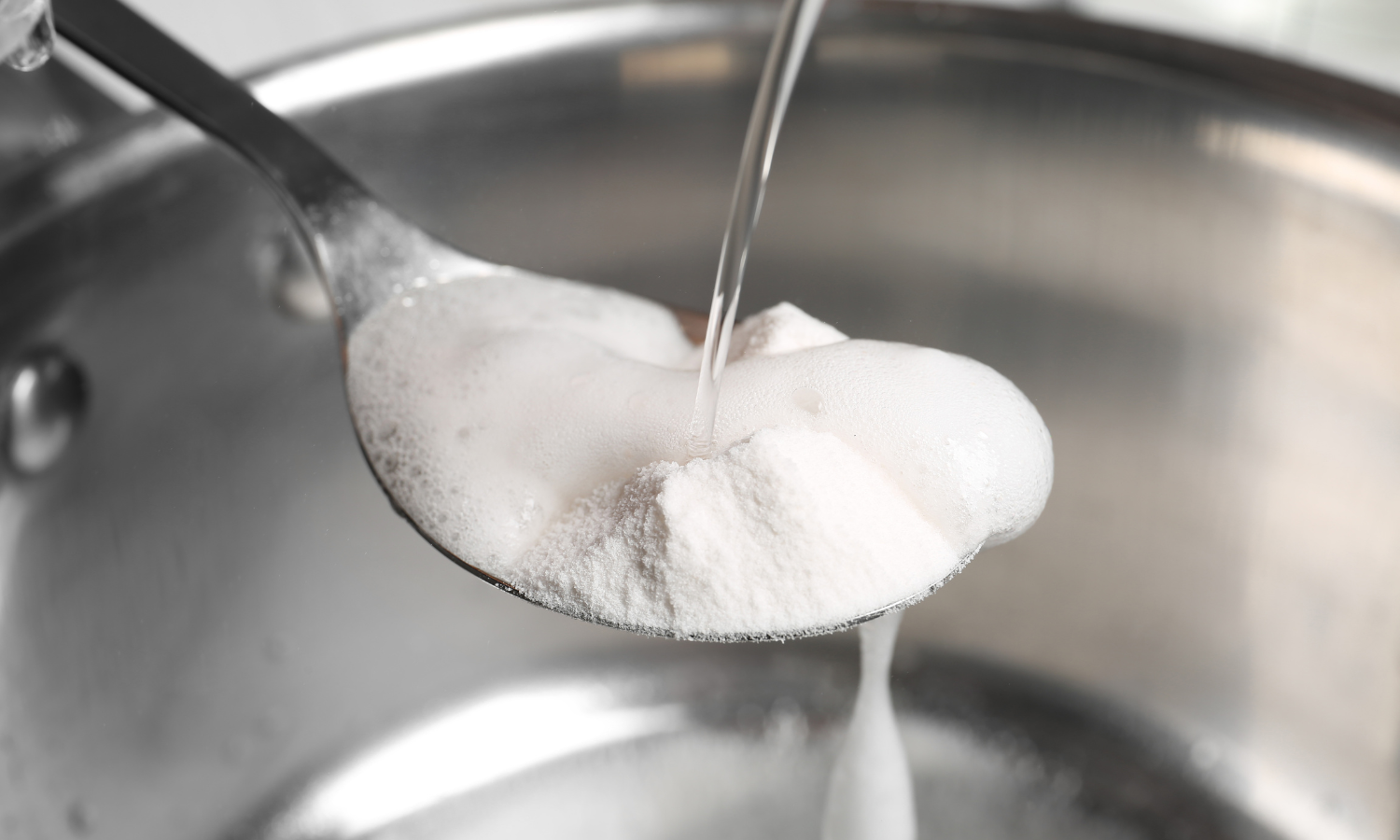
- Ingredients: One teaspoon clove oil, one tablespoon baking soda, one-half cup white vinegar, four cups water and four cups hot water.
- Directions: Mix baking soda with vinegar and hot water. Using a sponge, begin scrubbing the affected area to loosen mold and grime. In a separate container, mix clove oil with water. Pour this solution into a spray bottle, shake well, and lightly spray the area where mold is growing. Scrub the area with a sponge or toothbrush to remove the mold, then rinse with water. Lastly, spray the area again with the clove oil mixture to inhibit further mold growth.
Tip: Cloves antimicrobial (and antibacterial) properties can keep your gums healthy and reduce oral bacteria that can lead to plaque, gingivitis and cavities, To reap these benefits, look for a toothpaste that includes clove oil and brush away.
Anti-inflammatory benefit
Prepare your own clove chai tea, brew a separate blend of clove and cinnamon tea or steep whole or ground cloves in hot water to drink early in the morning. The anti-inflammatory properties of cloves stem from their ability to inhibit enzymes that trigger pain and swelling, making them an excellent natural remedy for reducing inflammation throughout the body. Regular consumption of cloves in your diet can help manage inflammation associated with chronic diseases such as arthritis and heart disease. Additionally, incorporating cloves into your daily routine can enhance your body's immune response and improve overall wellness.
DIY clove chai tea recipe:
- Ingredients: One cup of water, one crushed clove, a pinch of cinnamon, three-fourths teaspoon of tea leaves, one teaspoon of sugar and milk to taste.
- Directions: Place water, along with the crushed clove and cinnamon, on to heat. Cover the pot with a lid tightly to retain the flavors. Allow to boil vigorously for about two minutes. Then, lower the heat and add the tea leaves or a teabag. Turn off the heat and let it stand for a few minutes to steep. Pour the tea into a cup, add sugar and milk according to your preference and enjoy.
Anti-carcinogenic and other benefits
Clove is not only versatile in use but also potent in health benefits. As you're aware, it contains eugenol. Eugenol has been studied for its potential to prevent or slow the development of cancer by inhibiting the growth and proliferation of cancerous cells and by acting as a powerful antioxidant to prevent cellular damage.
Its benefits can be leveraged in numerous ways—as highlighted above—including using it as a cough supplement, to regulate hunger levels, to maintain blood pressure, by diffusing it in your home or in its most well-known use for easing toothaches. Additionally, consider incorporating ground clove into smoothies, rice dishes or desserts.
For a savory twist, try this simple clove-infused rice recipe:
Clove rice recipe:
Ingredients: One cup basmati rice, one-and-a-half cups lukewarm water, two tablespoons oil, one small onion (thinly sliced), two whole cloves, two teaspoon of cumin, three-fourths inch cinnamon stick and about two teaspoon salt. Optional: two green cardamom pods.
Directions: Wash and soak the rice in lukewarm water for 30-45 minutes. Heat oil in a pot, add cinnamon, cumin, cloves (and cardamom if using). Sauté for a minute, add onion and fry until dark gold. Drain rice, add to the pot and fry briefly. Add salt and water, mix and boil. Reduce heat, cover and simmer until water is absorbed. Let stand 5-10 minutes. Fluff with a fork before serving.
How does Dr. Killigan use clove oil?
Dr. Killigan’s Six Feet Under Plant-Powered Insect Spray features clove oil as a key active ingredient, with a concentration of 0.05%. Clove oil is a unique, powerful and versatile essential oil. In addition to its plethora of benefits listed above, clove oil is also an insect repellent. Traditionally, a few drops of clove oil used to be put on one’s bed sheets at night to keep the bugs away.
Clove oil is a rapid-acting, all-natural insect killer that is effective against mosquitoes, ants, wasps, moths and their larvae, flies, fleas, earwigs, silverfish, mites, aphids, cockroaches and more. If you want to keep the bugs at bay this summer, keep a bottle of Six Feet Under close by. It will kill these flying, crawling and scurrying miscreants on contact.
Six Feet Under is a non-toxic, poison-free spray with no fumes, no toxic pesticides, no harsh chemicals, no pyrethrins, no pyrethroids and no permethrin. This is crucial as bugs are increasingly developing resistance to synthetic chemical insecticides. There are now insects resistant to every type of synthetic insecticide available, which could render traditional bug sprays ineffective.



